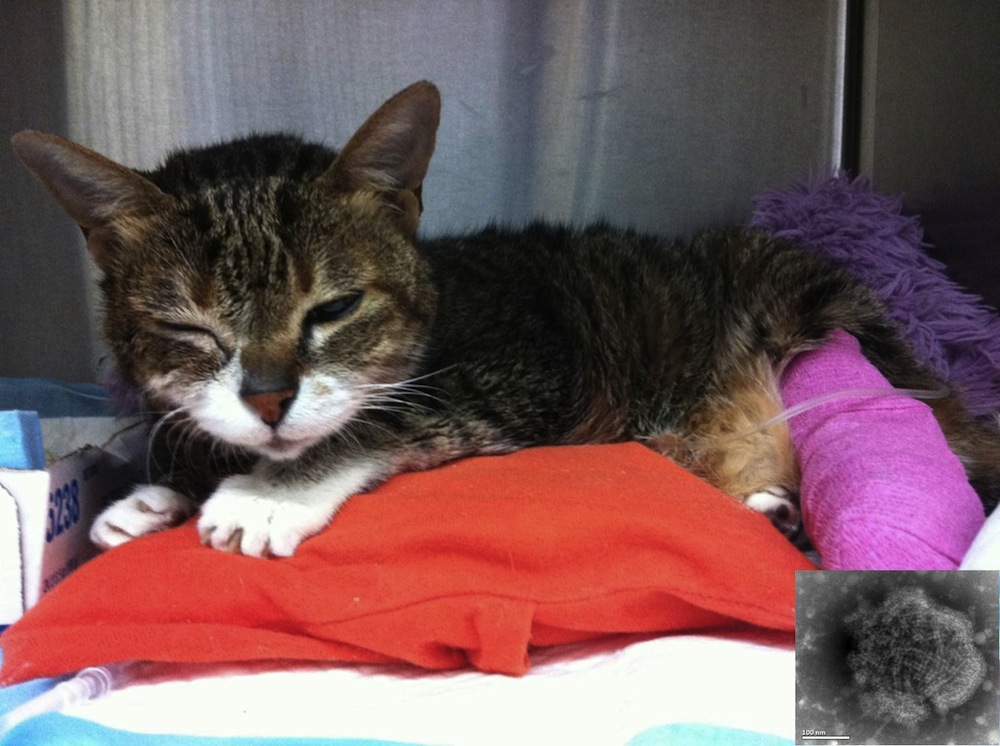Newly Discovered Virus Linked to Deadly Kidney Disease in Cats

Get the world’s most fascinating discoveries delivered straight to your inbox.
You are now subscribed
Your newsletter sign-up was successful
Want to add more newsletters?

Delivered Daily
Daily Newsletter
Sign up for the latest discoveries, groundbreaking research and fascinating breakthroughs that impact you and the wider world direct to your inbox.

Once a week
Life's Little Mysteries
Feed your curiosity with an exclusive mystery every week, solved with science and delivered direct to your inbox before it's seen anywhere else.

Once a week
How It Works
Sign up to our free science & technology newsletter for your weekly fix of fascinating articles, quick quizzes, amazing images, and more

Delivered daily
Space.com Newsletter
Breaking space news, the latest updates on rocket launches, skywatching events and more!

Once a month
Watch This Space
Sign up to our monthly entertainment newsletter to keep up with all our coverage of the latest sci-fi and space movies, tv shows, games and books.

Once a week
Night Sky This Week
Discover this week's must-see night sky events, moon phases, and stunning astrophotos. Sign up for our skywatching newsletter and explore the universe with us!
Join the club
Get full access to premium articles, exclusive features and a growing list of member rewards.
A newly discovered virus may be one of the causes of a potentially fatal kidney disease in pet cats.
Tubulointerstitial nephritis is a disease that inflames the spaces between the kidney tubules, the tubes that carry fluid for filtration inside the organ. Many factors can cause tubulointerstitial nephritis in humans, from infections to autoimmune disorders to certain medications. But in cats, the cause is rarely known.
Now, researchers in Hong Kong believe they've found at least one culprit: a new virus related to measles and mumps dubbed feline morbillivirus. A dog version of this virus causes distemper, which manifests as vomiting, diarrhea, coughing and deadly neurological symptoms.
"All dogs are vaccinated against the canine distemper virus, because the dog morbillivirus can cause very severe disease in dogs with fever, pneumonia, brain infection, immunosuppression and rash," study researcher Kwok-Yung Yuen told LiveScience. "Despite the close relationship between dog, cat and human, no morbillivirus is found in cats yet. And one of top causes of death in cases due to nephritis leading to kidney failure is quite unknown." [10 Deadly Diseases That Hopped Across Species]
Yuen and his colleagues went looking for this elusive cat morbillivirus, figuring that if viruses in this family could infect dogs and humans, they'd likely show up in cats. They were right. Of 457 stray cats from Hong Kong and mainland China tested, 12.3 percent (56 individuals) carried the virus. A total of 27.8 percent had antibodies to the virus, meaning they had been infected at some point in their lives.
The researchers then conducted autopsies and post-mortem exams on 27 deceased stray cats. They found tubulointerstitial nephritis in seven of the 12 stray cats with evidence of feline morbillivirus infection. Of the 15 uninfected cats, only two had kidney damage.
The virus should not pose a threat to human health, Yuen said, but the findings could be important for cats no just in Hong Kong but also the United Kingdom and the United States. Currently, there is no good prevention or treatment for feline tubulointerstitial nephritis, he said. That's bad news for the 22 percent of Hong Kong pet owners who keep cats, and for the estimated 75 million housecats in America.
Get the world’s most fascinating discoveries delivered straight to your inbox.
"We are now working [to learn] the relative risk of kidney involvement in those cats infected and testing for antiviral agents," Yuen said. "We are trying to set up animal models for vaccine studies."
The research appears today (March 19) in the journal Proceedings of the National Academy of Sciences.
You can follow LiveScience senior writer Stephanie Pappas on Twitter @sipappas. Follow LiveScience for the latest in science news and discoveries on Twitter @livescience and on Facebook.

Stephanie Pappas is a contributing writer for Live Science, covering topics ranging from geoscience to archaeology to the human brain and behavior. She was previously a senior writer for Live Science but is now a freelancer based in Denver, Colorado, and regularly contributes to Scientific American and The Monitor, the monthly magazine of the American Psychological Association. Stephanie received a bachelor's degree in psychology from the University of South Carolina and a graduate certificate in science communication from the University of California, Santa Cruz.
 Live Science Plus
Live Science Plus










